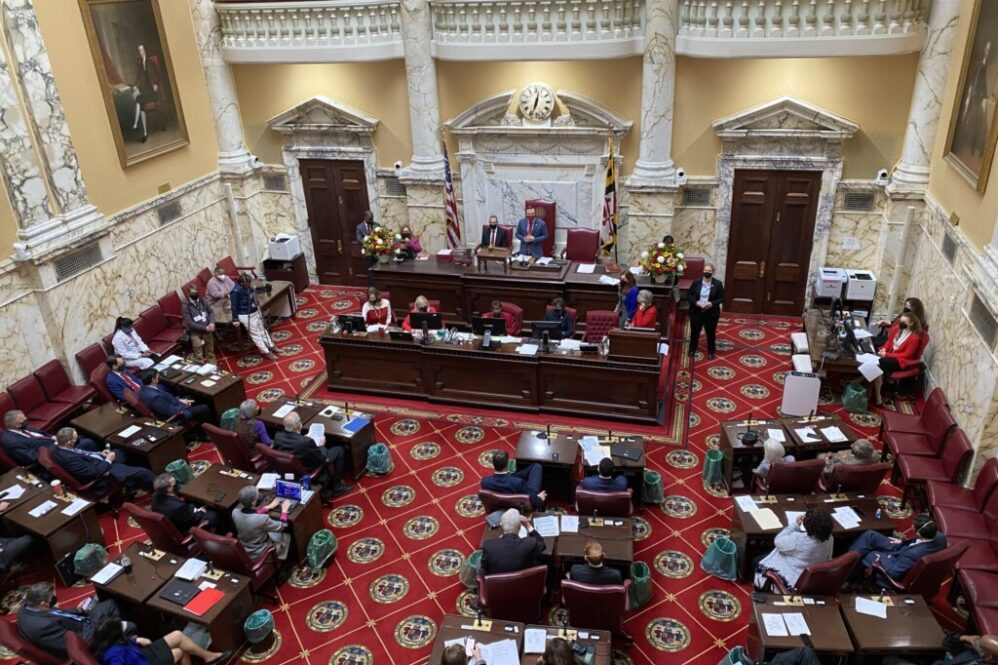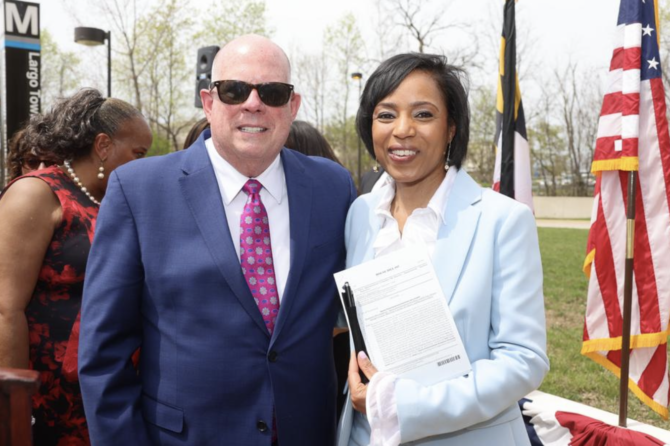At last, the district lines are cast in stone. The filing deadline is in the rearview mirror. So it’s time to look ahead to some of the most competitive legislative primaries on the ballot July 19.
With fewer and fewer purple legislative districts in the state, much of the action over the last few election cycles has been in the primary.
In 2018, for example, three Senate seats changed hands in the general election, with two that had been held by Democrats switching to the Republican column and one GOP seat flipping to the Democrats. By contrast, five senators that year — four Democrats and one Republican — lost their party primaries.
This year, we see no more than half a dozen competitive Senate races in the general election — and that’s probably a stretch. But many Senate incumbents have drawn intra-party challengers this year, and most of the seven open-seat Senate primaries should also be pretty hard-fought, at least in the primary.
So without further ado, here’s a look at 10 Senate primaries to watch over the next 12 weeks, in district numerical order:
District 1 (Garrett, Allegany and Washington counties) Republican primary
With veteran Sen. George C. Edwards (R-Allegany) stepping down after 40 years in Annapolis, including 16 years in the Senate, the GOP primary is where the action is. The race pits Del. Michael W. McKay (R-Allegany) against Allegany County Commissioner Jacob C. “Jake” Shade.
It would be easy to cast this race as the Trump wing of the Republican Party (McKay) vs. the Hogan wing (Shade), but that’s an oversimplification, though McKay is certainly more vocally conservative on social issues. There’s also a generational aspect to the race (McKay is 53 and Shade is 31), and the two have different sets of life experiences. An Edwards endorsement could prove pivotal.
Through mid-January, Shade had $70,297 in his campaign account compared to McKay’s $47,401.
The primary winner will be heavily favored in the general election.
District 3 (Frederick County) Democratic primary
The real question here is whether Frederick residents will ever tire of the Young dynasty. With Sen. Ronald N. Young (D), a fixture in local politics since the late 1960’s, moving aside, his wife, Del. Karen Lewis Young (D) stepped up early to succeed him — in fact, before he even acknowledged that he was moving on. And she’s undoubtedly the frontrunner. Other Young family members also have been active in local politics for years. But Democrats disinclined to vote for a Young have a credible alternative in Jay Mason, a member of the Frederick County Board of Education.
Lewis Young had far more cash on hand in mid-January, $53,300 to Mason’s $9,746.
The primary winner will be a strong favorite in the November election.
District 10 (Baltimore County) Democratic primary
The best-laid plans of departing Senate Finance Chair Delores G. Kelley (D) and House Speaker Adrienne A. Jones (D) to anoint Del. Benjamin T. Brooks Sr. (D) to succeed Kelley could run into trouble, with Del. Jay Jalisi (D) and two others seeking the Democratic nomination.
Jalisi, who was elected to the House at the same time as Brooks, in 2014, jumped into the race at the filing deadline. Also running: Former teacher Stephanie Boston, who sought the Senate seat as a Republican in the past, and Lawrence Williams, who competed in the Democratic primary four years ago.
Add to the confusion a 10-candidate Democratic primary for three House seats in the district, with Jones as the only incumbent seeking re-election, meaning there will be many crosscurrents at play.
Jalisi may not be wildly popular with his House colleagues, but he managed to finish ahead of Brooks in both the 2014 and 2018 Democratic primaries. As of mid-January, Brooks had $56,349 on hand, while Jalisi, a physician who owns a health management company, had zero in his campaign account but a $152,176 debt to himself — suggesting he may be willing to self-fund a campaign in 2022.
District 18 (Montgomery County) Democratic primary
This is a classic Democratic scrum where both candidates consider themselves progressives, but one is far more of an establishment figure while the other is more of an insurgent. It could turn into a slugfest.
Sen. Jeff Waldstreicher (D) is seeking a second term in the Senate after 12 years in the House of Delegates. He’s the vice chair of the Senate Judicial Proceedings Committee, is a prodigious fundraiser, and is calling in as many chits as he can from his fellow elected officials across the state, many of whom are lining up to endorse him.
But Waldstreicher is not universally admired in the district, and some progressive activists have been particularly critical of his role during the 2021 police reform deliberations in Annapolis and on other issues. They’ve cast their lot with Max Socol, a former organizer with a national Jewish community services organization who is a member of the Silver Spring Justice Coalition.
Through mid-January, Waldstreicher had $430,663 cash on hand, while Socol reported $83,048 in the bank. This is a district that consistently elects high-profile Democrats like Chris Van Hollen, Rich Madaleno, John Hurson and Patricia Sher, so it will be interesting to see how voters align. It’s also unclear what the fallout will be from the recent vote by the Montgomery County Democratic Central Committee to fill a vacancy on the District 18 House ballot.
The general election will be a cakewalk for the primary winner.
District 23 (Prince George’s County) Democratic primary
Sen. Ronald L. Watson (D) was appointed to the job last summer after less than a full term in the House of Delegates. He’s facing a primary challenge from businesswoman Sylvia Johnson, who as of mid-January had put more than $86,000 into her campaign through direct donations and loans, and Raaheela Ahmed, a former member of the Prince George’s County Board of Education who is running as a full-throated progressive.
Watson, who had $75,676 in his campaign account in January, must be considered the favorite, and may benefit from the split opposition. But the Bowie-based district is rapidly changing, and there are highly-competitive races for the House and County Council also on tap in the area, which adds to the level of uncertainty.
Ahmed had $66,037 in her campaign treasury in mid-January, while Johnson had $55,237.
The primary winner faces no opposition in November.
District 28 (Charles County) Democratic primary
Sen. Arthur Ellis (D) won his seat four years ago by ousting veteran Sen. Thomas M. “Mac” Middleton, the powerful chair of the Finance Committee in Annapolis, in a wild Democratic primary. And while there are still some bruised feelings left from that contest, and Ellis doesn’t mind putting himself at odds with the local political establishment when he feels it’s the right thing to do, it’s hard to imagine him losing this race.
Still, the primary is worth watching, because Ellis’ challenger is Vontasha R. Simms, a crusader for mental health programs who gained unwanted prominence half a dozen years ago when her 3-year-old grandson was found dead after his mother had pushed his lifeless body in a playground swing for two days. Simms is also a member of the Charles County Democratic Central Committee and will undoubtedly attract some attention.
Ellis had $120,557 in the bank as of mid-January.
District 32 (Anne Arundel County) Democratic primary
It feels like this primary between first-term state Sen. Pamela G. Beidle (D) and Anne Arundel County Councilmember Sarah F. Lacey (D) has yet to ignite. But any time a sitting councilmember challenges a sitting state senator in a Democratic primary, promising to be a more aggressive and progressive representative of the community, it’s worth keeping an eye on.
Beidle had a substantially more robust war chest as of mid-January: $221,211 compared to $4,695 for Lacey. Beidle, who spent eight years on the county council and a dozen years in the House before winning her Senate seat, is one of the most durable elected officials in the county.
District 34 (Harford County) Republican and Democratic primaries
Sen. Robert G. Cassilly (R) is departing to run for county executive, leaving competitive and intriguing Republican and Democratic primaries in his wake — and quite possibly a competitive general election.
The GOP race pits businessman Walter “Butch” Tilley against former state Del. Christian J. Miele. Tilley is trying to use the fact that he’s a lifelong Harford County resident against Miele, who grew up in New Jersey, moved to Maryland to attend Towson University, and represented Baltimore County in the House of Delegates.
Tilley owns an insurance company in Harford County and has been active in several civic endeavors, including as president of the Harford County Sheriffs Foundation and as chair of the Harford County Liquor Control Board.
Some Republicans are likely to point out that Tilley was once a Democrat and has made contributions to Democratic candidates in the past, including former Gov. Martin J. O’Malley. But Tilley’s campaign website features a picture of him shaking President Trump’s hand and describes him as “a homegrown conservative leader.”
Miele represented District 8 in Baltimore County in the House for one term before unsuccessfully challenging state Sen. Katherine A. Klausmeier (D) in 2018, losing by 2.3 points in what turned out to be a strong year for Democrats. Miele then took a job in the Hogan administration as deputy secretary at the Department of Disabilities and moved to Harford County, where his wife is from and where his in-laws own a business.
As of mid-January, Miele reported $63,212 in his war chest, though the campaign is carrying $21,717 in debts from the 2018 election. Tilley had $43,663 in the bank.
The Democratic primary features Del. Mary Ann Lisanti and former Del. Mary-Dulany James, who was the Democratic nominee for Senate against Cassilly in 2014 and 2018. Both candidates have their detractors, and Lisanti has been estranged from the Democratic establishment at home and in Annapolis since it was reported that she uttered a racial slur during an after-hours gathering in the state capital three-plus years ago. But the two women are also the most successful Democrats in Harford over the past two decades.
Lisanti had $9,849 in the bank in January, and the campaign was carrying a $56,536 debt from previous campaigns. James had no money in her campaign account at the time though was carrying $101,453 in debt from her 2014 Senate race.
The national political environment may determine whether Democrats have a chance of flipping this seat in November. In 2018, a good year for Democrats, Cassilly defeated James 50.1% to 49.7%, a far closer race than in 2014, a Republican year, when he won 57.2% to 42.7%.
District 37 (Caroline, Dorchester, Talbot and Wicomico counties) Republican primary
Sen. Adelaide C. Eckardt (R) won her Senate seat in 2014 by ousting an incumbent in the GOP primary while she was serving in the House of Delegates. Now the script has been flipped and a Republican delegate, John F. “Johnny” Mautz IV, is coming after her.
But Eckardt was able to prevail over then-Sen. Richard F. Colburn in part because he was under scrutiny for having an affair with a former aide, among other alleged transgressions. This year’s primary seems like a more conventional ideological battle, with Mautz suggesting Eckardt has become too cozy with Democrats during her 28 years in Annapolis. There’s also a generational aspect to the race: Mautz is 51 and Eckardt is 78.
Through mid-January, Mautz had $153,434 on hand while Eckardt reported $81.370.
Sleeper races: District 26 (Prince George’s County) Democratic primary, District 36 (Upper Shore) Republican primary, District 42 (Baltimore and Carroll counties) Republican primary. Read more articles like this at Maryland Matters.
Photo: A view of the Maryland Senate chamber from the visitor’s gallery. Photo by Danielle E. Gaines.










